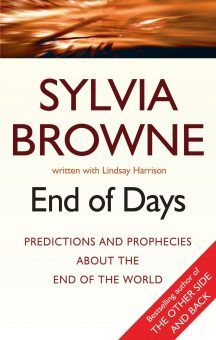Norse Mythology
There are few more colorful and more intricate doomsday visions than the Norse mythology of the end of the universe, or Ragnarok, which means “doom of the gods.” Norse mythology had its origins in the pre-Christian northern Germanic, European, and Anglo-Saxon beliefs of Scandinavia. And when it came to Ragnarok, the “doom” in “doomsday” was an understatement.
First, the legend goes, Fimbulvetr arrives—a three-year nonstop blast of the most brutal winter imaginable. During Fimbulvetr, probably because of their relentless misery, people begin feuding and fighting with each other and abandoning any semblance of morality. It’s the first sign that the end is on its way.
Next, a wolf arrives. The wolf’s name is Skoll, and upon his arrival he devours the sun. His brother Hati promptly eats the moon, and the whole world is plunged into darkness.
Three cocks crow, summoning the gods and the earth’s giants and even waking the dead.
The earth begins rumbling with massive earthquakes, toppling mountains and freeing a ship of the dead from the bowels of hell, with Loki at its helm, his son Fenrir, another wolf with a massive mouth, at his side.
The sea roils violently and Jormungand, a colossal, venomous serpent, writhes enraged as he heads toward the Norwegian battle-ground called Vigrid, where the final war on Earth will be fought by the gathering combatants. Jormungand poisons the sea, the land, and the sky with his venom and he makes his way to Vigrid.
The tsunami waves of the sea liberate the ship Naglfar from its moorings, and, commanded by the giant Hymir, the vessel full of giants sails toward the battlefield.
From the south comes another army of giants, led by Surt the fire giant, who carries a sword hotter than the sun that scorches everything in his path as he and his legions march to Vigrid.
Heimdall, the Viking god of light, sees the warriors approaching from all directions and sounds his horn to summon the gods. Odin, the supreme Norse deity; Thor, the god of thunder; Odin’s sons; and the other heroic gods of the heavens arrive on the battlefield in golden armor, riding magnificent white steeds.
The assembly continues until all the gods, giants, and demons have arrived for mortal combat on the massive, doomed Norwegian expanse.
Odin and Fenrir instantly attack each other, a fight that continues for a very long time.
Thor attacks Jormungand, the venomous serpent, and kills him. But the serpent’s poison slowly and very surely kills Thor.
Surt the fire giant finds the unarmed god of sun and rain, Freyr, and quickly destroys him.
Tyr, the one-handed god of heroic glory, does battle with the monstrous hound Garm, who guards the entrance to the underworld. They both die in combat.
Loki and Heimdall, mortal enemies for as long as anyone can remember, square off, and neither survives.
Finally the battle between Odin and Fenrir ends, with the vicious wolf managing to seize and swallow Odin.
Enraged, Odin’s son Vidar kills Fenrir with his bare hands.
Surt, in a final insane explosion of violence, begins hurling fire all around him until the entire world is burning and anyone still living dies in the flames.
Pages: 1 2 3 4 5 6 7 8 9 10 11 12 13 14 15 16 17 18 19 20 21 22 23 24 25 26 27 28 29 30 31 32 33 34 35 36 37 38 39 40 41 42 43 44 45 46 47 48 49 50 51 52 53 54 55 56 57 58 59 60 61 62 63 64 65 66 67 68 69 70 71 72 73 74 75 76 77 78 79 80 81 82 83 84 85 86 87 88 89 90 91 92 93 94 95 96 97 98 99 100 101 102 103 104 105 106 107 108 109 110 111 112 113 114 115 116 117 118 119 120




